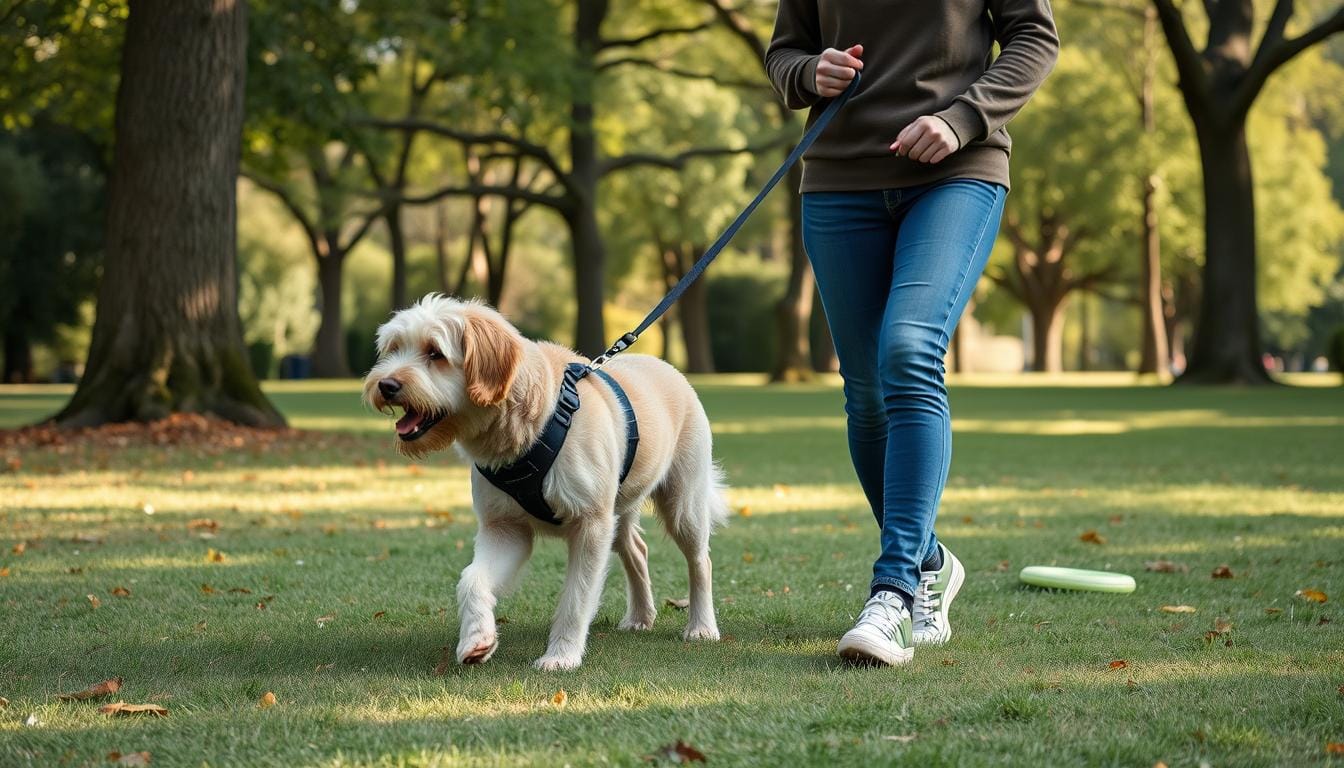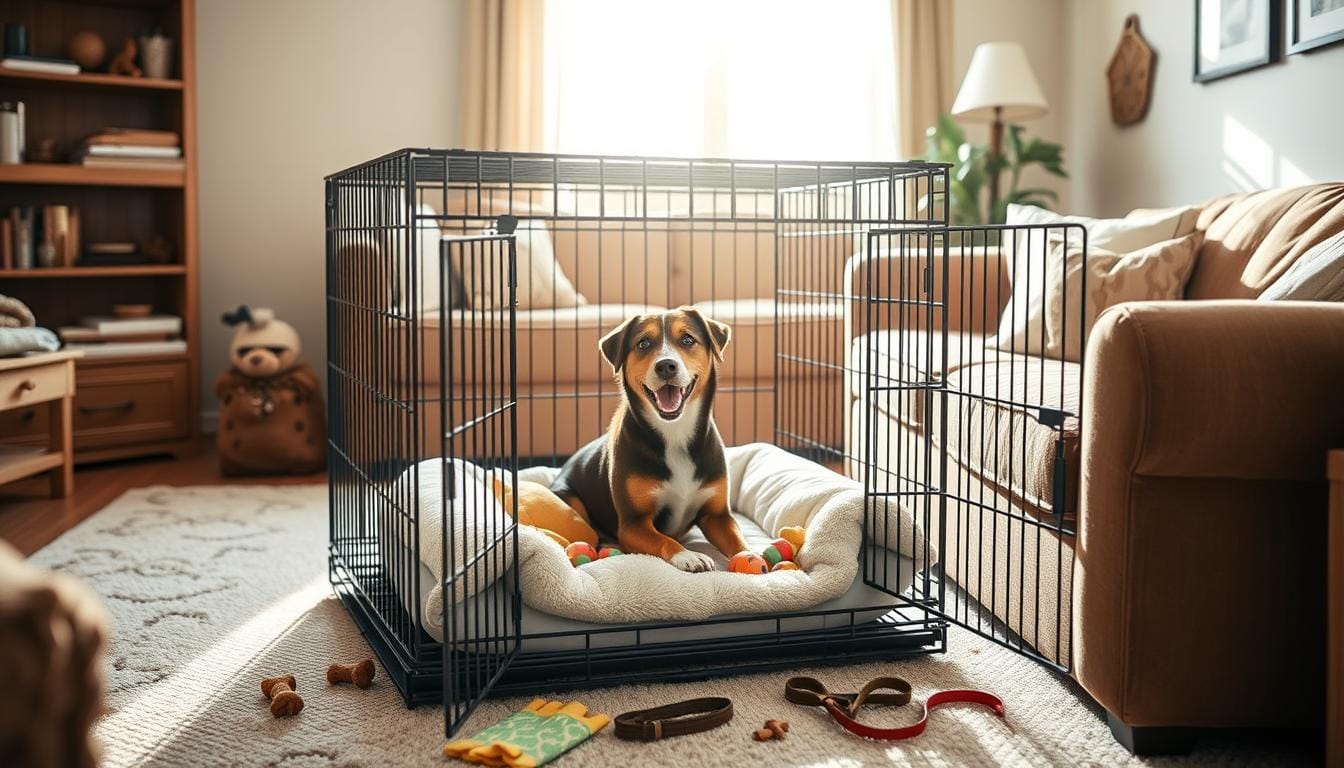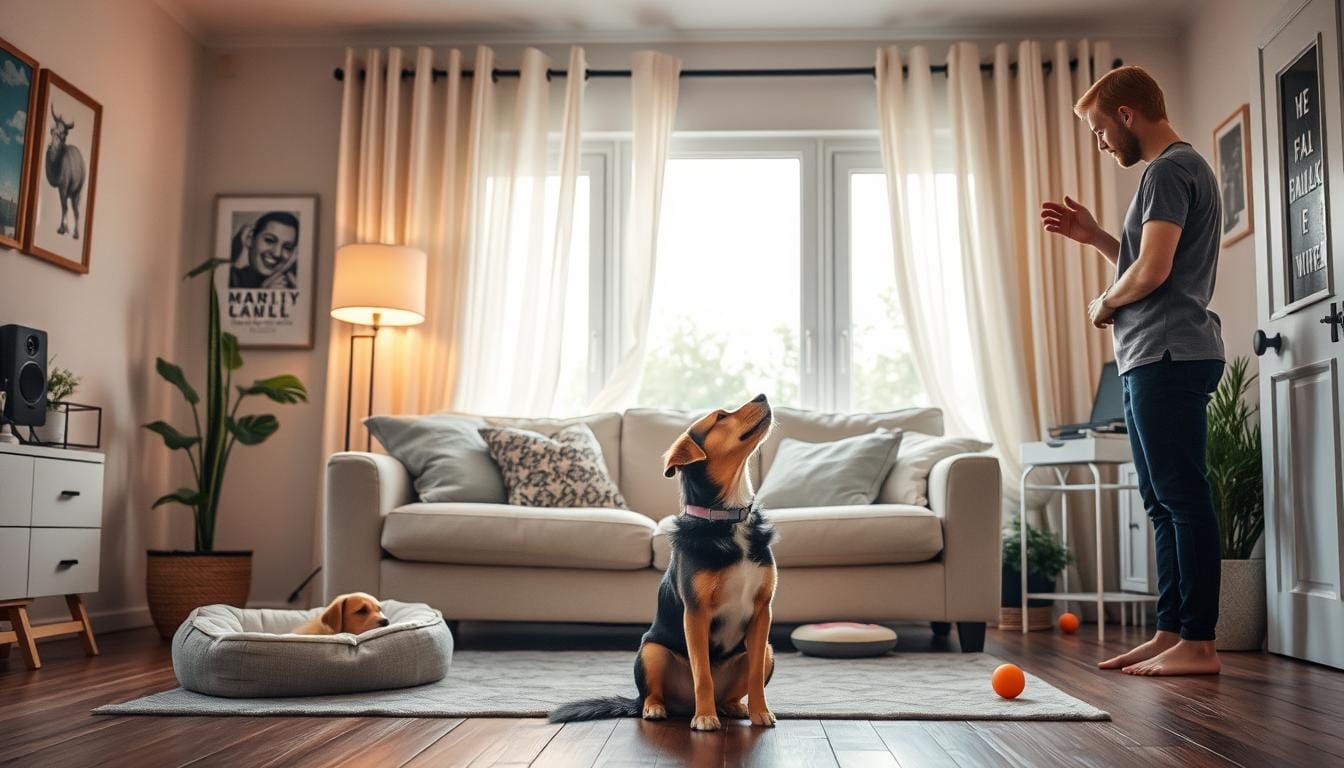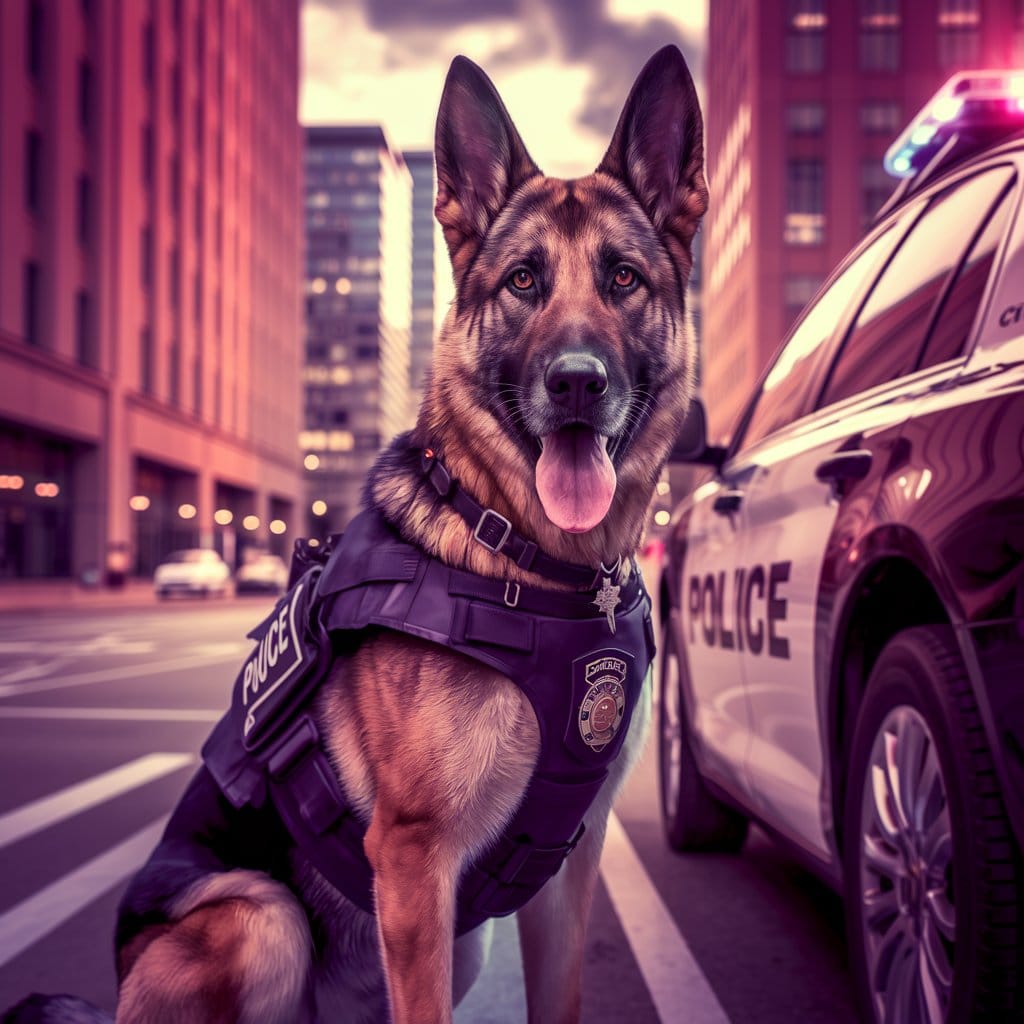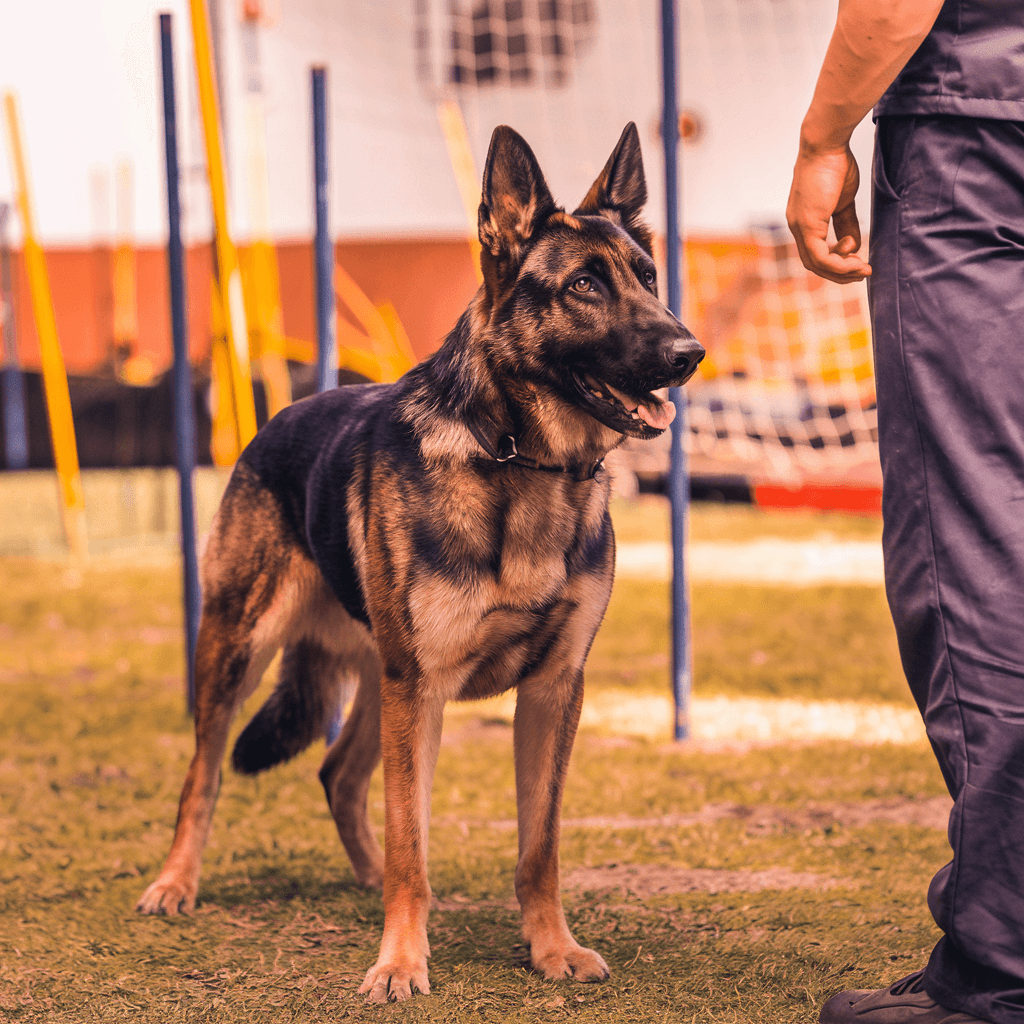Dogs can sense human emotions instinctively. They can read our facial expressions and body language. This lets them respond to our moods before we even notice.
Dogs use cues like tail wagging and eye contact to show they understand us. This emotional intelligence is amazing.
We need to pay attention to our dogs’ health, just like they do to ours. Diarrhea is a common issue in dogs. Knowing the causes and how to treat it is key for pet owners.
Dog diarrhea is more common than you might think. Most dogs have loose stools at some point. It can be due to many things, like diet changes or stress.
Knowing the signs and when to see a vet is important. This guide will help you understand dog diarrhea. You’ll learn how to care for your dog better.
Key Takeaways
- Dogs can sense and respond to human emotions
- Diarrhea is a common health issue in dogs
- Various factors can cause diarrhea in dogs
- Recognizing symptoms is crucial for proper treatment
- Both home remedies and veterinary care may be needed
- Understanding dog diarrhea helps improve pet care
What is Dog Diarrhea?
Dog diarrhea is a common problem for pet owners. It’s marked by loose, watery stools. Knowing the symptoms is key to treating it and knowing when to seek vet help.
Definition and Characteristics
Dog diarrhea happens when the body can’t absorb water and nutrients well. This leads to loose, frequent bowel movements. The stool might be watery, pudding-like, or have mucus or blood.
Acute vs. Chronic Diarrhea
Diarrhea in dogs can be acute or chronic:
- Acute diarrhea: Lasts 1-14 days
- Chronic diarrhea: Persists for over 14 days
Acute cases usually get better with simple remedies. But chronic diarrhea might mean a serious issue and needs vet care.
Normal vs. Abnormal Stool Consistency
Knowing normal vs. abnormal stool helps you know when to act:
| Normal Stool | Abnormal Stool |
|---|---|
| Chocolate brown color | Unusual colors (e.g., black, red, yellow) |
| Log-shaped | Pudding-like or watery consistency |
| Compact | Large volumes |
| Easy to scoop | Contains mucus or blood streaks |
If your dog has persistent or severe diarrhea, see a vet. They can find the cause and help stop the diarrhea.
Common Causes of Dog Diarrhea
Dog diarrhea can stem from many sources, ranging from minor to serious health issues. It’s vital to know what causes it to provide the right care and treatment.
Food changes, eating spoiled items, or swallowing non-food objects can upset a dog’s stomach. Stress and anxiety, often overlooked by pet owners, also play a significant role in causing digestive issues.
Infections are another common cause. Bacterial, viral, or parasitic infections can lead to diarrhea. Parvovirus, a highly contagious and life-threatening condition, often presents with severe diarrhea as one of its first signs.

Medical conditions such as inflammatory bowel disease, pancreatitis, or organ dysfunction can result in chronic diarrhea. In older or immunocompromised dogs, recurring episodes may indicate a more serious underlying health problem.
“More than two episodes of diarrhea may indicate a problem that requires veterinary attention.”
Here’s a breakdown of common causes:
| Category | Causes |
|---|---|
| Dietary | Food changes, table scraps, spoiled food |
| Infections | Bacterial (e.g., Salmonella), viral (e.g., Parvovirus), parasites |
| Environmental | Stress, travel, boarding |
| Medical Conditions | Inflammatory bowel disease, pancreatitis, allergies |
| Toxins | Ingestion of poisons or harmful substances |
If your dog shows signs of severe or prolonged diarrhea, especially with symptoms like weakness, vomiting, or loss of appetite, seek immediate veterinary care.
Recognizing the Signs and Symptoms
Spotting dog diarrhea symptoms early is key to quick action. Let’s look at the physical and behavioral signs of dog diarrhea. We’ll also know when to worry.
Physical Symptoms
The most obvious signs of dog diarrhea are changes in stool consistency and frequency. Look for loose or watery stools and more trips to the bathroom. Stool color can change, from yellow to dark brown. You might also see blood or mucus in the stool.
Behavioral Changes
Dogs with diarrhea often act differently. They might seem tired or less playful. A drop in appetite is common, and they might drink more water. Some dogs may seem uncomfortable, like they’re restless or stretching a lot.
When to Be Concerned
While mild diarrhea now and then is okay, some symptoms need quick vet attention. If diarrhea lasts over 48 hours, has blood, or comes with vomiting, see a vet. Signs of dehydration, like dry gums or sunken eyes, are also serious. Remember, long diarrhea can quickly cause dehydration, especially in small dogs.
- Diarrhea lasting more than 2 days
- Blood in stool
- Vomiting along with diarrhea
- Signs of dehydration
- Fever or severe lethargy
By spotting these signs early, we can help our pets get the care they need. Always be cautious with your pet’s health.
The Canine Digestive System: An Overview

The dog digestive system is amazing and very efficient. Dogs have special enzymes in their mouths that kill bacteria. This lets them eat foods that are bad for us.
When a dog eats, food goes down the esophagus fast. It then enters the stomach in big pieces.
Dogs have stomach acids that are three times stronger than ours. This acid breaks down food that’s mostly whole. Unlike us, they don’t have pre-chewed food in their stomachs.
The whole digestion process in dogs takes less than 10 hours. This quick digestion makes them efficient eaters. But, sudden diet changes can upset their system and cause diarrhea.
“Understanding your dog’s digestive system can help you make informed decisions about their diet and health.”
Most mild cases of diarrhea in dogs get better in 48-72 hours. But, if symptoms don’t get better or get worse, you need to see a vet. Black or tarry diarrhea is a sign of serious problems and needs quick attention.
A healthy digestive system is vital for your dog’s health. Knowing how it works helps us care for our pets better. It also helps us spot problems early.
Dietary Factors Contributing to Diarrhea
Diet is key to a dog’s digestive health. We’ve learned that certain foods can cause dog food diarrhea. Knowing what to avoid can help keep your pet healthy.
Sudden Diet Changes
Changing a dog’s diet too quickly can upset their stomach. A study by Berset-Istratescu C.M. et al. in 2014 found 40-48% of dogs got acute diarrhea. To avoid this, slowly introduce new foods.
Food Intolerances and Allergies
Some dogs are allergic to certain foods. Grains like wheat, corn, and soy can be culprits. Dogs with allergies often get diarrhea. Feeding them foods they’re not allergic to can help.
Toxic or Spoiled Foods
Eating bad food can really hurt a dog’s stomach. Raw diets, while trendy, can cause diarrhea. Make sure to get food from trusted sources and store it right.
| Dietary Factor | Impact on Dog Diarrhea | Prevention/Management |
|---|---|---|
| Sudden Diet Changes | 40-48% prevalence rate | Gradual food transitions |
| Food Intolerances | Increased risk for sensitive dogs | Limited ingredient diets |
| Toxic/Spoiled Foods | Severe digestive issues | Proper food handling and storage |
Understanding these dietary factors helps manage dog food diarrhea. Always talk to a vet for advice on your dog’s diet and health.
The Role of Stress and Anxiety in Canine Diarrhea
Many dog owners face the issue of stress-induced diarrhea. Dogs, like humans, can get upset stomachs when stressed or anxious. This is called stress colitis and usually gets better in 2-5 days without needing a doctor.
Anxiety and dog diarrhea are closely related. The “fight or flight” hormone, norepinephrine, is key in this link. Events like car rides, vet visits, or changes in routine can upset a dog’s stomach.
It’s important to know the signs of stress-induced diarrhea. Look for loose stools, straining, more frequent and urgent bowel movements, and mucus or blood in the stool.
- Skipping meals before stressful events
- Adding fiber to the diet (e.g., plain canned pumpkin)
- Using calming aids like Adaptil spray
- Creating positive associations with potential stressors
Preventing stress-related digestive issues is crucial. Keep a regular routine, avoid stressful situations, and work with a trainer. This can help reduce anxiety and diarrhea in dogs.
For most cases, diet changes can treat stress colitis. A high-fiber, easy-to-digest diet with probiotics can help. Remember, antibiotics are rarely needed and can make diarrhea worse by harming good bacteria in the gut.
When to Seek Veterinary Care
Knowing when to take dog to vet for is crucial for your pet’s health. While occasional mild episodes are common, certain signs indicate a need for immediate professional attention.
Emergency Symptoms
Watch for these red flags that require urgent care:
- Bloody or black tarry stools
- Severe abdominal pain
- Vomiting alongside diarrhea
- Lethargy or weakness
- Fever above normal body temperature
Chronic Diarrhea Concerns
If diarrhea persists for more than 48 hours, it’s time to consult a vet. Recurring bouts over a short period could signal serious health issues, especially in puppies or senior dogs. Chronic cases lasting beyond two weeks need professional evaluation to rule out underlying conditions.
Dehydration Risks
Dehydration is a major concern with prolonged diarrhea. Signs include:
- Sunken eyes
- Dry, tacky gums
- Loss of skin elasticity
Puppies and small breeds are particularly vulnerable to dehydration, which can quickly become life-threatening. If you notice these symptoms, seek immediate dog diarrhea treatment from a veterinarian.
“Most dogs will experience diarrhea in their lifetimes, but knowing when it’s serious can save your pet’s life.”
Remember, while home remedies can help in mild cases, never give human medications without veterinary approval. When in doubt, it’s always safer to consult with a professional for proper care and treatment.
Veterinary Diagnosis and Examination Procedures
Vets use many methods to figure out why a dog has diarrhea. They start with a physical exam. This helps them see if the dog is dehydrated and how healthy it is.
They also ask for stool samples to check for parasites or bacteria. Blood tests help find hidden problems. Sometimes, X-rays or ultrasounds are needed to look at the dog’s gut.
- Complete Blood Count (CBC)
- Serum biochemistry profile
- Urinalysis
- Fecal flotation
- Serum thyroxine testing
Now, let’s see how well these tests work:
| Diagnostic Method | Accuracy/Detection Rate |
|---|---|
| Zinc sulfate sedimentation (Giardia) | 75% (single test), 95% (three samples) |
| Saline fecal smear (Giardia) | 20% (single test), 40% (three samples) |
| Serum trypsin-like immunoreactivity | 75% accuracy for pancreatic exocrine insufficiency |
| Endoscopic examination | 75% accuracy for chronic small bowel diarrhea |
Only about 5% of dogs with long-term diarrhea look sick. This shows why vets need to do lots of tests to find the cause.
Home Remedies and Treatment Options
It’s upsetting when our dogs get diarrhea. Let’s look at some home remedies and treatments for dog diarrhea. These can help with mild cases. But, if symptoms are bad or last a long time, you need to see a vet.
Fasting and Dietary Management
Adult dogs with sudden diarrhea might benefit from a short fast. This lets their digestive system rest. After fasting, try a bland diet of boiled chicken and rice.
This diet helps the gut heal and gives important nutrients. But, fasting is not good for puppies or dogs with health issues.
Hydration Techniques
Keeping your dog hydrated is key when they have diarrhea. Give them fresh water often in small amounts. For really bad cases, a vet might suggest an electrolyte solution.
Watch for signs of dehydration like tiredness or dry gums. If you see these, get your dog to the vet right away.
Probiotics and Supplements
Probiotics are great for fixing gut health and are good for dog diarrhea. Yogurt with live cultures or dog probiotic supplements can help. Also, a little canned pumpkin can make stools firmer because of its fiber.
But, always talk to your vet before adding new things to your dog’s diet.







